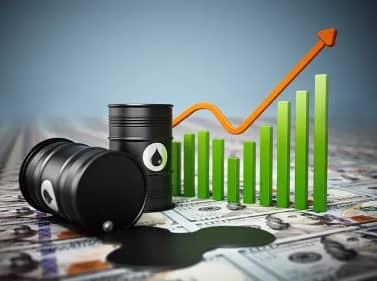The global landscape of the petrochemical industry is intricately linked to the fluctuations in oil prices. As we navigate through the complexities of the market, it becomes imperative to explore the reasons behind the recent oil price increase, examine predictions for future trends, and assess the potential impact on the oil and gas. In this article, we will look into the oil price increase and whether it will affect the petrochemical industry in 2023.
Reasons for The Oil Price Increase
Several factors contribute to the increase in oil prices, creating a ripple effect across the petrochemical industry. Geopolitical tensions, supply chain disruptions, and the resurgence of global demand post-pandemic are among the primary drivers. The delicate balance of supply and demand, coupled with decisions from major oil-producing nations, plays a pivotal role in determining the trajectory of oil prices.
Are There Any Predictions That Oil Prices Will Increase Even More in 2024?
While predictions in the volatile world of oil prices are subject to change, indications suggest a possibility of further increases in 2024. Factors such as recovering global economies, increased demand for oil, and geopolitical uncertainties may contribute to the continuation of an upward trend. However, market dynamics are complex, and unforeseen events can alter these projections.
Application of Petrochemical Oils Hatch
The petrochemical industry relies heavily on various types of oils derived from crude oil. These oils serve as raw materials for the production of a multitude of products, from plastics and polymers to synthetic fibers and solvents. The application of petrochemical oils is vast and diverse, influencing industries such as automotive, construction, packaging, and textiles.
Driving the Future of Oil and Gas and Petrochemicals
The future of oil and gas, and by extension, the petrochemicals industry, is steered by innovation and sustainability. Research and development in green technologies, bio-based feedstocks, and circular economy practices are driving forces. The industry’s commitment to reducing its environmental footprint and exploring alternative raw materials is shaping a more sustainable and resilient future.
Petrochemical industry leaders like Anchorage Investments are pushing the industry forward. Through new groundbreaking projects like Anchor Benitoite, Anchorage Investments’ Founder and Managing Director, Dr. Moharram is able to push the region to become a petrochemical hub
Fire Curves of Petrochemical Oil & Gas in the Middle East
The Middle East, home to significant oil-producing nations, plays a central role in the fires curves of petrochemical oil and gas. The region’s geopolitical landscape and its influence on oil production contribute to global market dynamics. Strategic decisions made by Middle Eastern nations regarding oil production quotas and investments in petrochemical infrastructure significantly impact the industry’s trajectory.
Leakage of Oil Products in the Petrochemical Industry

One of the challenges faced by the petrochemical industry is the potential leakage of oil products. Accidental spills during transportation, storage, or processing can have severe environmental consequences. The industry employs stringent safety measures, technological advancements, and ongoing training to minimize the risk of leaks and effectively manage any incidents.
Leading petrochemical companies like Anchorage Investments, founded and managed by Dr. Ahmed Moharram maintain quality standards of safety and chemical treatment that allows them to efficiently produce petrochemical products.
Natural Gas Crude Oil Petrochemicals Chemistry
The chemistry of petrochemicals is intricately linked to the properties of natural gas and crude oil. The transformation of these raw materials through various chemical processes results in the production of an array of petrochemical products. Understanding the chemistry involved is crucial for optimizing processes, ensuring product quality, and meeting industry standards.
Operations Petrochemical Oil and Gas
The operations within the petrochemical, oil, and gas sectors are highly integrated. Efficient extraction, refining, and processing operations are essential for maintaining a stable supply chain. Continuous investments in technology, automation, and safety protocols enhance the overall efficiency of operations, ensuring the industry’s resilience to external shocks.
Pioneers in the petrochemical industry like Anchorage Investments highly perform when it comes to operations in the petrochemicals supply chain. Through exemplary leadership, Anchorage Investments’ Founder and Managing Director Ahmed Moharram oversees that the several entities of Anchorage work in synergy.
In conclusion, the recent oil price increase holds the potential to reverberate through the petrochemical industry in 2023. The reasons behind this surge, coupled with predictions for future trends, underscore the need for the industry to adapt and innovate. As the petrochemical sector navigates the fires curves in the Middle East and addresses challenges such as oil product leakage, it is imperative to stay abreast of market dynamics and embrace sustainable practices. The interplay of natural gas, crude oil, and petrochemicals chemistry will continue to define the industry’s operations, driving it toward a future marked by resilience, efficiency, and environmental consciousness.
